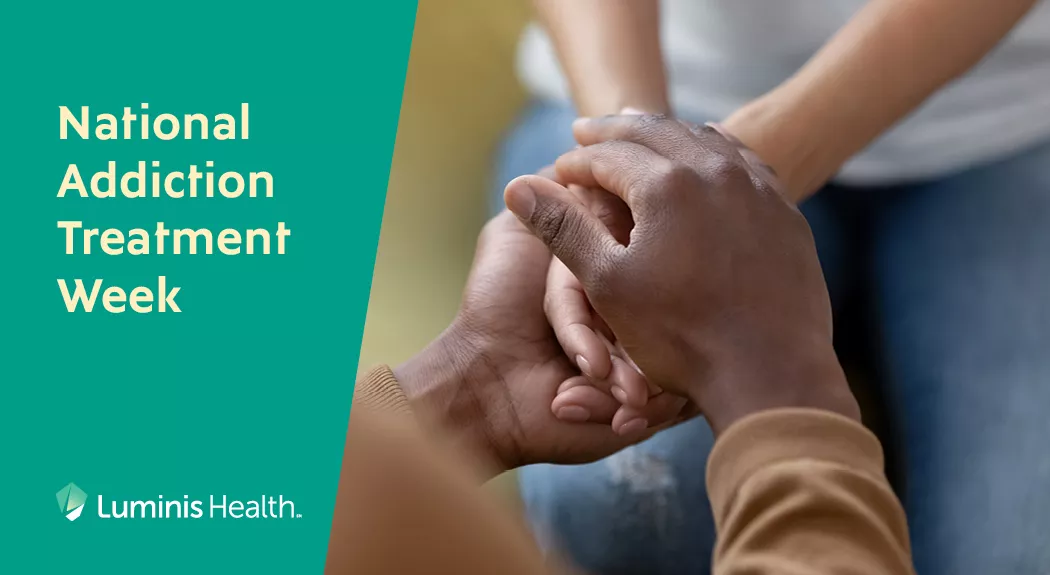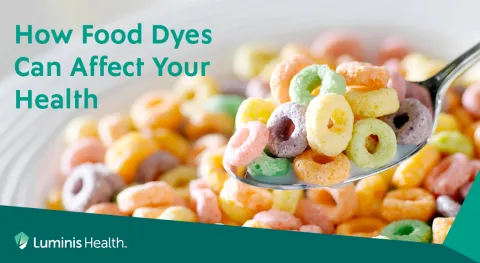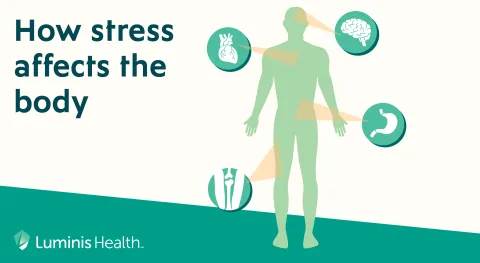
As you enjoy colorful leaves and brisk temperatures, take a moment to recognize National Addiction Treatment Week during the third week in October. This annual initiative raises awareness about substance use disorder as a chronic, treatable disease and helps undo the stigma that surrounds it. Substance use changes your brain and your behavior. At Luminis Health, we understand that those impacted by substance use disorder are not in control, and we want to help you take that control back.
Risk factors
Substance use disorders are treatable medical disorders that affect a person’s brain and behavior, leading to an inability to control their use of drugs – whether legal or illegal – including alcohol or medications. Substance use disorders can develop from the use of many types of mood/mind-altering substances, with people developing dependencies on alcohol, stimulants, marijuana, opiates and others. Risk factors for developing a substance use disorder can include:
- Family history of substance use
- Readily available alcohol or drugs
- Starting substance use at a young age
- The presence of an untreated mental health condition
Available treatment options
It is important to realize you are not alone and there is hope. Many available treatment options are available to meet you or your loved ones needs, such as:
- Twelve-step support groups and other self-help groups, such as Celebrate Recovery
- Office-based treatment with a psychiatrist or primary care doctor using medications that are FDA-approved for substance use disorders
- Outpatient treatment—including intensive outpatient treatment—at substance use disorder treatment programs
- Inpatient residential treatment centers
- Recovery residences to help promote long-term change
Resources
It can sometimes be difficult to know where to begin your path to recovery. Here are some trusted organizations:
Maryland residents can access substance use services by calling 211 and pressing 1, by visiting https://211md.org or by texting 898-211 and entering your zip code.
The Substance Abuse and Mental Health Services Administration’s (SAMHSA) national helpline, 1-800-662-HELP (4357) is a confidential, free 24-hour hotline for individuals or family members facing mental or substance use disorders. This service provides referrals to local treatment facilities, support groups and community-based organizations.
You can also visit SAMHSA’s online treatment locator, or send your zip code via text message: 435748 (HELP4U) to find help near you.
Closer to home, Luminis Health Pathways offers care for individuals that need support with managing addiction and substance use.
Support for loved ones
If you have a loved one who is struggling with a substance use disorder, you must take proactive steps to help them on their journey to stay sober and drug-free. Here are some suggestions:
- Start by having an open and non-judgmental conversation with your loved one, expressing your concern and support.
- Encourage them to seek professional help, such as a therapist, counselor, or addiction specialist, who can provide the necessary guidance and treatment options.
- Find a support group. Al-Anon and Alateen can be very helpful in learning how to take care of yourself while also discovering how to appropriately support your loved one with a substance use disorder.
- Consider a therapy-based education program for families. Luminis Health offers family wellness workshops. Call (443) 481-5449 for upcoming dates and more information.
- Be patient and understanding, as recovery can be challenging and an ongoing process.
There’s always hope
“I have seen many more substance use disorder success stories than failures in my years of practice,” says Dr. Aliya Jones, executive medical director of behavioral health for Luminis Health. “Most people are eventually successful when they are able to use available resources for support and stay engaged in their care.”
To learn more about substance use disorder and treatment, please visit here.
Aliya Jones, MD, is the executive medical director of Behavioral Health for Luminis Health.



